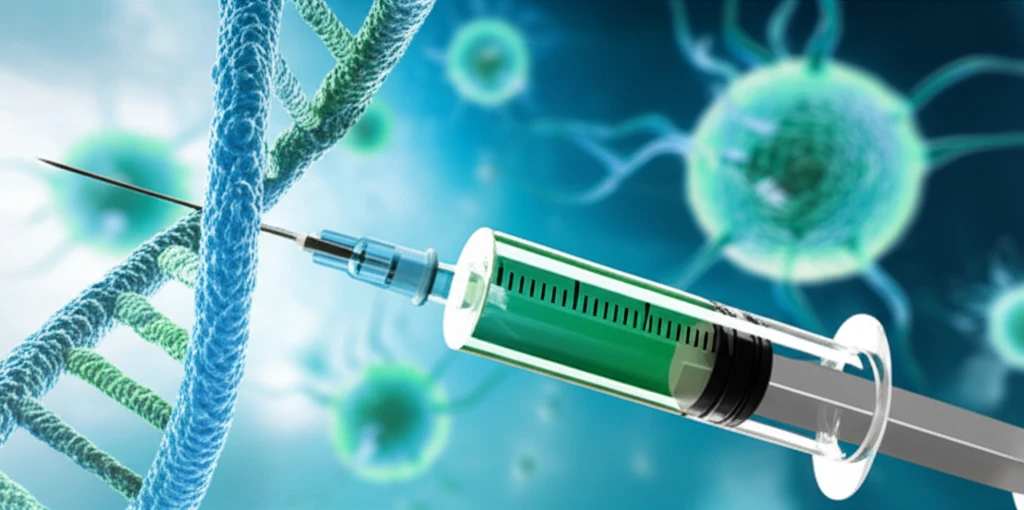
Decoding Your DNA: How Genetics is Revolutionizing Vaccines and Personalized Medicine
"From Measles to the Future: Understanding Your Genes to Unlock Better Vaccine Protection"
Vaccines stand as one of humanity's greatest triumphs, safeguarding us from a myriad of infectious diseases. For over a century, they've been a cornerstone of public health, drastically reducing the incidence and severity of illnesses like polio, measles, and influenza. Yet, the quest for even more effective and personalized vaccines continues. This is where the fascinating world of genetics steps into the spotlight.
The effectiveness of a vaccine isn't always a one-size-fits-all scenario. Factors such as age, overall health, and individual genetic makeup can influence how well a vaccine works. Now, with the advent of advanced genetic technologies, we're gaining deeper insights into these variations. This knowledge paves the way for tailoring vaccines to suit each person's unique genetic profile, ushering in an era of personalized medicine.
This article delves into the intriguing world of genetics and vaccines, unraveling how your genes influence your response to these crucial medical interventions. We'll explore the history of vaccines, the role of specific genes, and the promise of personalized medicine in developing the next generation of life-saving treatments.
The Genetic Blueprint: How Genes Shape Vaccine Responses

Your genetic code is a vast and intricate instruction manual, dictating everything from your eye color to your immune system's response to foreign invaders. When you receive a vaccine, your immune system springs into action, learning to recognize and defend against a specific pathogen. But the strength and efficiency of this response are, in part, guided by your genes.
- HLA Genes: These genes present antigens to immune cells, variations impact vaccine response.
- Cytokine Genes: Regulate immune cell communication and influence the intensity of the immune response.
- Other Immune-Related Genes: Numerous other genes affect various aspects of the immune response.
The Future of Vaccines: Personalized and Predictive
The convergence of genetics and vaccinology holds immense promise for the future of healthcare. By understanding the genetic underpinnings of vaccine responses, researchers can design vaccines tailored to individual needs. This means better protection for everyone, especially those who may not respond effectively to traditional vaccines. As we continue to unlock the secrets of our DNA, we move closer to an era of truly personalized and predictive medicine, where vaccines are optimized for each person's unique genetic code. The journey has just begun, and the potential benefits are truly inspiring.
